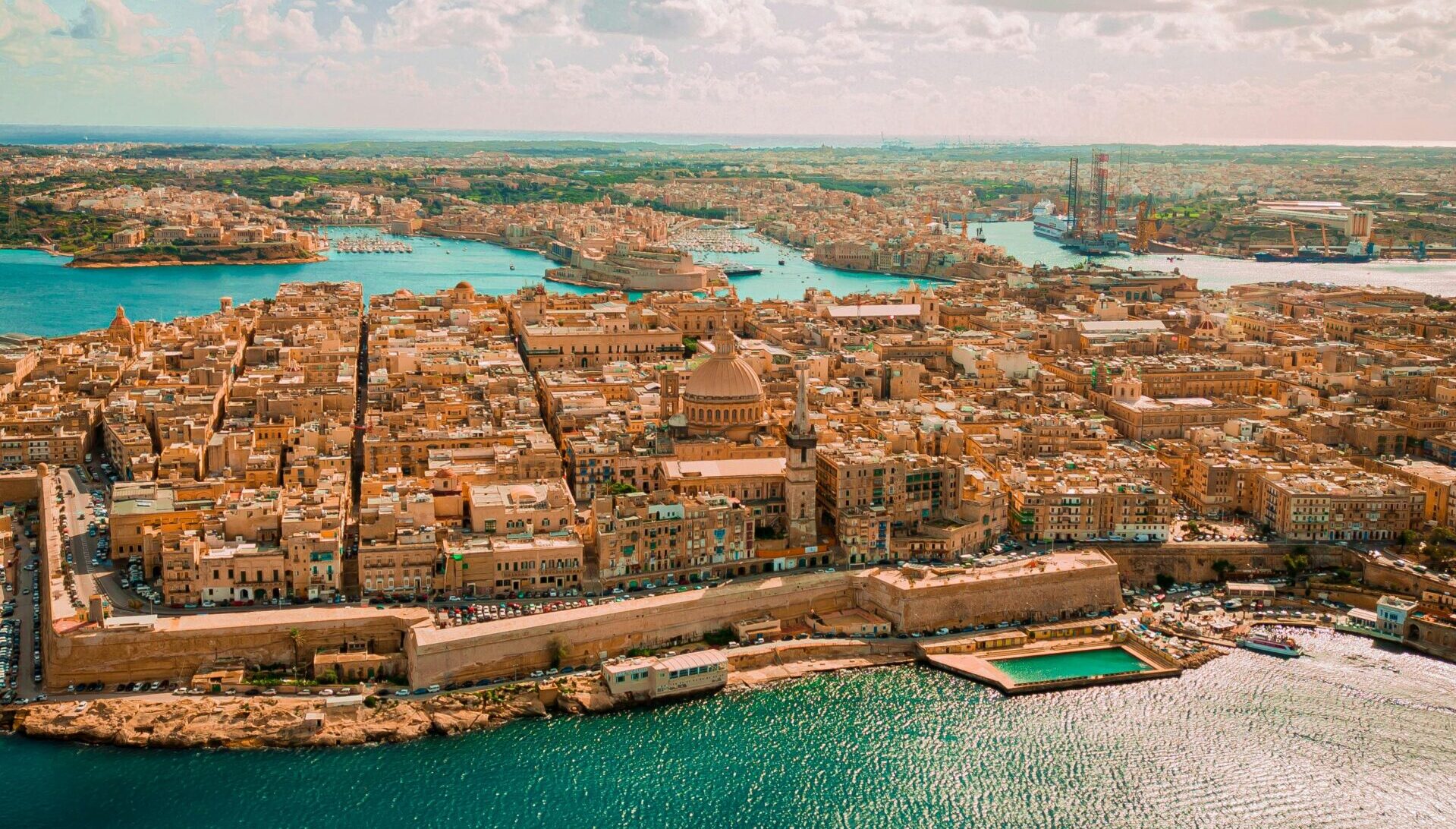Malta has officially unveiled Malta Vision 2050, a strategic blueprint designed to shape the country’s development over the next 25 years, with the overarching goal of securing a healthy quality of life for all.
Built on four strategic pillars – Sustainable Economic Growth, Accessible Citizen-Centred Services, a Resilient Country and Modern Education System, Smart Land and Sea Usage – the Vision provides a roadmap for national development across key areas such as the economy, society, governance, infrastructure, and the environment.
Strategic investment in seven high-value sectors
The government will focus investment and policy support on seven sectors identified as essential for sustainable economic growth:
- Financial Services: Malta will position itself as a regional hub for investment funds, fintech ventures, and multinational headquarters. Regulatory modernisation, better branding, and digital innovation will underpin this strategy.
- Aviation: Expansion of aircraft registration, MRO capabilities, and critically, the establishment of long-haul direct connectivity to North America, the Middle East, and Asia to boost trade, tourism, and foreign investment.
- Gaming and Interactive Entertainment: Includes video game development, e-sports, and a strengthening of regulatory oversight.
- Tourism: A shift toward premium tourism offerings, aiming to increase per-capita expenditure rather than sheer visitor numbers.
- High-End Manufacturing: Focused on pharmaceuticals, semiconductors, and Industry 4.0-to-5.0 automation technologies.
- Blue and Green Economies: Supporting marine sustainability, renewable energy infrastructure, circular waste systems, and biodiversity protection.
- Shipping and Maritime: Expansion of Freeport capacity, enhanced ship registration processes, and the creation of new international trade routes to reinforce Malta’s logistics hub ambitions.
A national shift towards a green economy
Malta plans to reorient its economy to meet global sustainability benchmarks. This includes:
- Investment in clean energy and biofuels
- Nature-based carbon neutrality strategies
- Circular economy principles across industries
Businesses in construction, logistics, energy, and waste management can expect new regulatory and funding frameworks tied to environmental performance and sustainable practices.
Manufacturing sector modernisation
Malta will move its manufacturing base towards automation, digitisation, and high-tech output, preparing for Industry 5.0. Key focuses:
- Smart production systems
- Talent upskilling in high-tech roles
- Support for digital transition in SMEs
Reinforcing workforce policy and inclusion
To address talent shortages and ensure social cohesion, several key labour market reforms are being introduced:
- Workforce Application Limit: Recruitment of third-country nationals will be strictly aligned with labour market needs to prevent oversaturation and wage pressure.
- Targeted Job Inclusion Programmes: These will expand training, internships, and hiring incentives for persons with disabilities and underrepresented groups.
- Pension Reform: Introduction of a supplementary second-pillar occupational pension scheme, where employer matching contributions will help boost retirement savings – a key consideration for both employees and businesses managing HR benefits.
Smart logistics and connectivity
To combat congestion and inefficiencies in delivery systems:
- Deployment of commercial drones for last-mile logistics is being piloted, enabling smarter urban freight systems.
- Mobility-as-a-Service (MaaS) platforms and future investments in mass transit will also support business mobility and logistics planning.
Digital infrastructure and smart governance
Malta will double down on digital transformation as a key enabler across all sectors. This includes:
- Investments in national digital twin infrastructure for urban planning, infrastructure management, and public service optimisation.
- Blockchain and AI-powered tools to increase government transparency, streamline licensing, and facilitate cross-border services.
- Expanded e-Government services for businesses, promising faster application processing and integrated platforms for permits, tax, and compliance.
Long-term targets for 2035 and beyond
- Top 20 global rank in the Human Development Index by 2035, and top 10 by 2050.
- Median disposable income to reach 135 per cent of the EU27 average by 2050 (up from 93 per cent in 2023).
- Among the top five EU countries for overall life satisfaction – a metric that blends quality of life, work-life balance, and economic stability.
Implementation & oversight
A Programme Management Office (PMO) will be set up to coordinate initiatives, track progress, and align funding. A national dashboard of KPIs will help measure success across sectors, giving the business community the transparency it often demands.
As Malta positions itself to meet future challenges and opportunities, Vision 2050 sets a clear direction for the country’s long-term sustainable development.
More reporting to follow.
‘It’s still about creating a meaningful connection with customers’: Matthew Fenech, Motors Inc.
The CEO explains how Motors Inc. keeps the customer experience at the centre of its growth trajectory
MFSA flags ‘misalignment’ between objectives and public expectations of green loans
Green investment is nonetheless expected to balloon over the coming years
Super rare Ferrari Daytona SP3 spotted cruising along Malta’s roads
The car is currently being traded for a whopping €4 million






